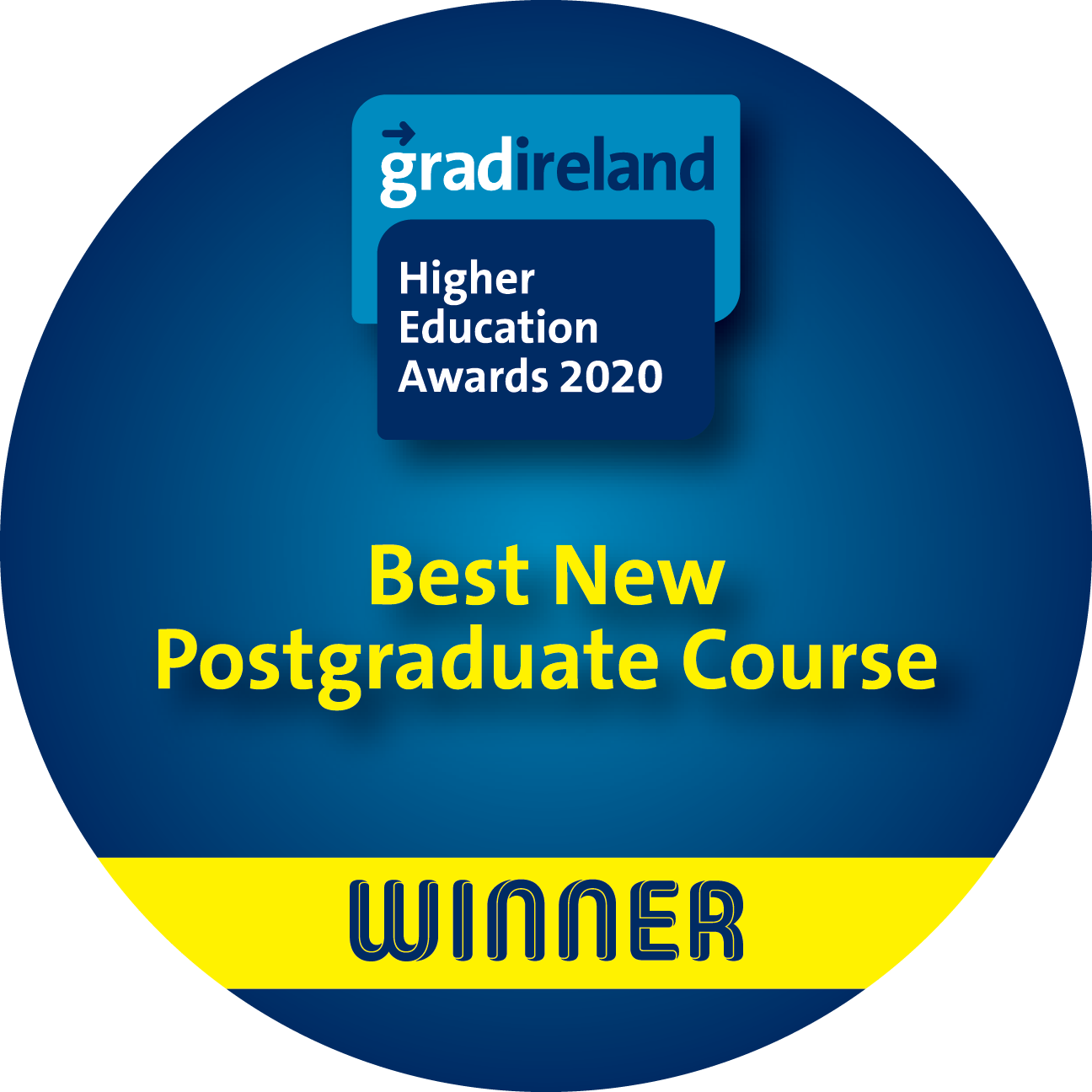-
Courses

Courses
Choosing a course is one of the most important decisions you'll ever make! View our courses and see what our students and lecturers have to say about the courses you are interested in at the links below.
-
University Life

University Life
Each year more than 4,000 choose University of Galway as their University of choice. Find out what life at University of Galway is all about here.
-
About University of Galway

About University of Galway
Since 1845, University of Galway has been sharing the highest quality teaching and research with Ireland and the world. Find out what makes our University so special – from our distinguished history to the latest news and campus developments.
-
Colleges & Schools

Colleges & Schools
University of Galway has earned international recognition as a research-led university with a commitment to top quality teaching across a range of key areas of expertise.
-
Research & Innovation

Research & Innovation
University of Galway’s vibrant research community take on some of the most pressing challenges of our times.
-
Business & Industry

Guiding Breakthrough Research at University of Galway
We explore and facilitate commercial opportunities for the research community at University of Galway, as well as facilitating industry partnership.
-
Alumni & Friends

Alumni & Friends
There are 128,000 University of Galway alumni worldwide. Stay connected to your alumni community! Join our social networks and update your details online.
-
Community Engagement

Community Engagement
At University of Galway, we believe that the best learning takes place when you apply what you learn in a real world context. That's why many of our courses include work placements or community projects.
Cellular Manufacturing and Therapy (MSc)
Course Overview
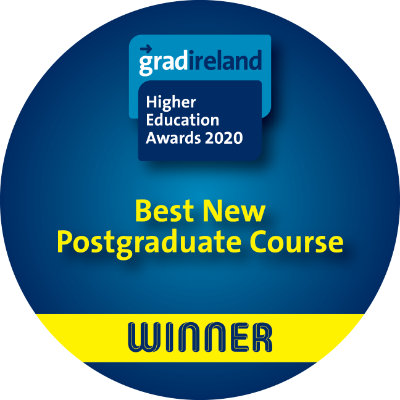
Winner of the Best New Postgraduate Course 2020 award in the GradIreland Higher Education Awards. To read more about this accolade, click here.
Why choose this programme?
“Cell and gene therapy comprise an extraordinary range of technologies that are already having an impact on patients and society and, in many ways, represent the future of medicine. However, these products present many challenges in terms of advanced manufacturing strategies, aseptic processing, automation and product characterisation. This MSc course provides the skills needed to address these challenges"—Professor Frank Barry, Scientific Director of the Regenerative Medicine Institute
Cell and gene therapy was identified as the most exciting therapeutic innovation by 79% of the 151 international biopharmaceutical manufacturers surveyed by the NIBRT, the Irish National Institute for Bioprocessing Research and Training (Trends in Manufacturing Report). The same organizations have difficulty filling available positions, specifically citing the need to hire bioprocess engineers and automation engineers.
The primary objectives of the MSc in Cellular Manufacturing & Therapy at the National University of Ireland Galway is to A) provide formal training in cellular bioprocessing for clinical application and B) cultivating a rigorous scientific underpinning for the development of a cellular therapy. The course curriculum balances the scientific aspects of cellular therapy (in 3 modules), bioprocessing and manufacturing regulation (in 2 modules) and offers optional modules in cancer biology, business, clinical trials and bio-ethics. A student’s practical skills are developed beyond the classroom laboratory activities with supplemental activities such as workshops in sterile gowning and a 4-month work or laboratory placement, thereby gaining research or enterprise-centric skills. When launching, this MSc programme was the first of its kind worldwide.
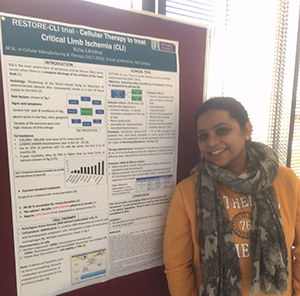
Richa Krishna, MSc student, Cellular Manufacturing & Therapy, pictured at Poster Day.
Unique position
The MSc in Cellular Manufacturing and Therapy is the one and only course in Ireland offering the following opportunities in support of a career in cellular therapy:
- Instruction in the clinical-grade manufacturing of therapeutic cells for clinical application.
- Modules in the biology underpinning the therapeutic application of mesenchymal stromal cells, immunotherapy and induced pluripotent stem cells, three types of cellular therapy currently in translation for clinical application.
- Instruction by a multidisciplinary team of experts, the first to translate cellular therapies from the bench to clinical application in Ireland.
- Four-month work placements where student are embedded in a host environment corresponding to their carer of choice.
New skills
Through the course activities, students will have the opportunity to develop both technical and transferrable skills. Technical skills will be acquired through practical activities and module assessments, including aseptic technique in mammalian cell culture; cryopreserving and thawing cryopreserved cells; plating and expanding adherent and mammalian cells; quantifying cell number, viability, density; pipetting large and small volumes; sterile gowning; data collection, presentation and analysis and technical writing. Transferable skills will be developed through course workshops and group activities, including the ability to meet deadlines; adaptability and flexibility, analysis and decision making, critical thinking and evaluation of the literature, research/scientific integrity, team leadership, networking, organization, public speaking, time management and written communication.
What makes this course unique ...
- Modules in the biology underpinning the therapeutic application of mesenchymal stromal cells, immunotherapy and induced pluripotent stem cells, three types of cellular therapy currently in translation for clinical application.
- Instruction by a multidisciplinary team of experts, the first to translate cellular therapies from the bench to clinical application in Ireland.
- Four-month placement where student are embedded in a host environment corresponding to their carer of choice.
Allied University of Galway courses
-
MSc in Regenerative Medicine. Click here to learn more.
-
MSc in Microscopy and Imaging. Click here to learn more
Scholarships available
Find out about our Postgraduate Scholarships here.
Applications and Selections
Applications are made online via the University of Galway Postgraduate Applications System.
Who Teaches this Course
Collaborative delivery of course content
The MSc in Cellular Manufacturing & Therapy is delivered by experts in the field of cellular manufacturing and pre-clinical research supporting the development of new therapies; those directly responsible for pioneering cellular manufacturing and therapy in Ireland. As an example, the Centre for Cell Manufacturing Ireland (CCMI) team (Ireland’s first centre for cell manufacturing) are active instructors in the Cellular Manufacturing 1 and 2 modules where the learning activities are centred around bioprocessing and its regulatory and quality oversight. Professors O’Brien, Barry and Griffin, pioneering coordinators of the first cellular therapy clinical trials in Ireland, deliver an in-depth lecture series in the Mesenchymal Stem Cell Therapy module where they describe the pre-clinical and clinical aspects of developing cellular therapies.
Developing, producing and applying a cellular therapy clinically is a multidisciplinary challenge. We rely on collaboration with experts in each of these fields to contribute their knowledge and insight within this programme. Examples of these collaborative activities in the past include:
Industrial collaboration
- Project managers from Cell Medica UK host a CV and interview skills workshop
- Bioreactor workshop hosted by Terumo technicians provided training on novel equipment.
- Guest lecturing from Biostor Ireland on cell bank storage and worldwide distribution for scientific research and clinical application.
- Staff from ONK Therapeutics providing immunotherapy practical activities, upskilling students in non-adherent cell culture, characterization and cryopreservation.
- Dissertation placements hosted by Regeneron, Avectas, Intas Pharmaceuticals, Aerogen, Charles River, Stempeutics, Galway Blood and Tissue Establishment (GBTE), Centre for Cellular Manufacturing Ireland, etc.
Academic Collaboration
- Lecturing and workshops provided by the scientists within the Regenerative Medicine Institute specializing in discovering novel applications for cellular therapies and understanding their mechanism of action
- Lecturing and gowning activities by the Centre for Cell Manufacturing Ireland who produce cellular therapies for clinical application
- Guest lecturing visionaries in the field, such as Prof. Martin Leahy (Chair of Applied Physics at NUIG), emphasizing the advantages of multidisciplinary collaboration to investigate biologic queries
- Dissertation placements hosted by scientists and primary investigators including Dr. Roisin Dwyer (cellular therapy for breast cancer), Dr. Kasia Whysall (muscle-derived progenitor therapy), Dr. Daniel O’Toole (cellular therapy for acute repertory distress) or at Hebei Medical University in China by Dr. Jun Ma (cellular therapy for neural disorders)
Collaborations with Clinicians and Patients
- Lecturing and mentoring by scientist clinicians, the first in Ireland to translate cellular therapies to clinical trials
- Assessment of scientific poster presentations describing ongoing clinical trials by the clinical trial recruitment specialists at (Galway University Hospitals)
- Module coordination by Dr. Veronica McInerney (Cellular Therapy Clinical Trials Manager), offering a unique insight into initiating first in man clinical investigations
- Dissertation placements hosted by Cancer Trials Ireland (CTI), Prof. Timothy O’Brien (coordinator of two cellular therapy clinical trials) and Prof. O’Dwyer (coordinator of trials in multiple myeloma)
Requirements and Assessment
Key Facts
Entry Requirements
Students must have completed one of the following with a minimum of 2nd class honours (or equivalant):
1) An undergraduate degree in medicine, pharmacy, manufacturing, biology, engineering.
2) An equivalent biomedical science-related undergraduate degree.
Applicants from non-biomedical science related backgrounds will be considered on a case-by-case basis at the discretion of the coordinators.
Students who have a degree without Honours in a related area and have 3+ years of practical experience in the subject area will also be considered for this programme.
For applicants where English is a second language, we will adhere to University of Galway guidelines of requiring IELTS scores of 6.5, TOEFL scores of 88, and/or Pearson PTE scores of 61 with no less than 6.5 in any component.
Initially a shortlisting procedure will be applied to prioritise applicants. Those who do not meet the primary entry criteria as described above will be declined entry into the programme. The remaining applicants will be reviewed in closer detail. Significant weight will be placed on:
A) the applicant’s essay describing their motivation for applying for this course and their career aspirations following the successful completion of the MSc,
B) the applicant’s previous academic performance.
An interview may be conducted.
Additional Requirements
Recognition of Prior Learning (RPL)
Duration
MSc, full-time
Next start date
September 2026
A Level Grades ()
Average intake
15–18
QQI/FET FETAC Entry Routes
Closing Date
Please view the offer rounds website.
NFQ level
Mode of study
ECTS weighting
90/60/30
Award
MSc
CAO
Course code
MSC-CMT
Course Outline
Programme curriculum:
The Cellular Manufacturing & Therapy suite of programmes are available in a 1-year full time format that suit individuals completing their BSc or transitioning between careers. The modules are available in a variety of formats giving accessibility to a wide range of students with different learning styles, including a lecture-based format, a flipped classroom format, and blended learning.
To see the proposed core and optional modules available in each programme starting in the next academic year, please click here.
Curriculum information
Curriculum information relates to the current academic year (in most cases). Course and module offerings and details may be subject to change.
Curriculum Information
Curriculum information relates to the current academic year (in most cases).Course and module offerings and details may be subject to change.
Glossary of Terms
- Credits
- You must earn a defined number of credits (aka ECTS) to complete each year of your course. You do this by taking all of its required modules as well as the correct number of optional modules to obtain that year's total number of credits.
- Module
- An examinable portion of a subject or course, for which you attend lectures and/or tutorials and carry out assignments. E.g. Algebra and Calculus could be modules within the subject Mathematics. Each module has a unique module code eg. MA140.
- Optional
- A module you may choose to study.
- Required
- A module that you must study if you choose this course (or subject).
- Semester
- Most courses have 2 semesters (aka terms) per year.
Year 1 (90 Credits)
RequiredMD1521: Cellular Manufacturing I
MD1521: Cellular Manufacturing I
Semester 1 | Credits: 10
The production of cellular therapeutics, a defining technology of the next century, presents a unique, complex challenge combining expertise in biology, engineering, regulatory oversight and quality assurance. This course aims to instil a fundamental, working knowledge of tissue procurement, cellular expansion and biobanking and advances in bioreactor technology. The overall scope of the module is broad, ranging from the fundamental biology of mammalian cell culture to engineering advancements leading to automated biomanufacturing of clinical therapies with constant emphasis on the production of advanced medicinal products. The principals gained from participating in this course provide an overall reference for the biomanufacturing process underpinning the production of cellular therapeutics. This module is a pre-requisite for Cellular Biomanufacturing II.
(Language of instruction: English)
Learning Outcomes
- Combine a fundamental knowledge of therapeutic tissue procurement and cellular isolation, expansion and cryopreservation with advances in the literature to propose a novel methodology for manufacturing a cellular therapy.
- Recognize and evaluate advancements in bioreactor technology, strategic scale-up technologies and process design to improve biomanufacturing processes.
- Identify advances in technique, reagents and procedures, applying them to good manufacturing practice policies in the production of a cellular therapy.
- Master the calculations associated with cellular expansion profile, anticipated yield, etc.
Assessments
- Continuous Assessment (100%)
Teachers & Administrators
Click a name to search for their researcher profile. Note: Only teachers publish research profiles.
The above information outlines module MD1521: "Cellular Manufacturing I" and is valid from 2020 onwards.Note: Module offerings and details may be subject to change.
RequiredMD1522: Cellular Immunotherapy
MD1522: Cellular Immunotherapy
Semester 1 | Credits: 10
This module offers an in-depth exploration of cellular immunotherapy, a revolutionary approach in medicine that extends beyond malignant disorders to include autoimmune diseases, infectious diseases, and more. It begins with foundational knowledge in immunology and immune cell biology, emphasizing the diversity and function of immune cells. The course delves into the principles and mechanisms of cellular immunotherapy, highlighting the engineering and modification of immune cells, such as CAR T cells and TCR-modified T cells, for therapeutic purposes.
Participants will explore the broad applications of cellular immunotherapy, examining its role in not only oncology but also in treating autoimmune conditions and infectious diseases, with a focus on the latest clinical applications and case studies. The module addresses the complexities of manufacturing, regulatory considerations, and the ethical landscape surrounding cellular therapies. It also looks ahead to emerging trends, including the use of "off-the-shelf" immune cell products, preparing participants for the future of immunotherapy across various medical disciplines. Designed for healthcare professionals and researchers, this module aims to equip attendees with a comprehensive understanding of cellular immunotherapy's potential, fostering innovation and application in diverse therapeutic areas.
(Language of instruction: English)
Learning Outcomes
- Introduction to Cancer Immunotherapy: Understand the concept and historical development of cancer immunotherapy. Identify key principles of immunotherapy, including the role of tumor antigens and immune system mechanisms in recognizing and targeting cancer.
- The Immune System and Cell Therapy: Basic Biology and Immunological Principles: Grasp the basic biology of the immune system, including the types and functions of immune cells. Comprehend the immunological principles underlying cell-based therapies and the immune system's response to cancer.
- Engineering Tumor Microenvironment for Cancer Immunotherapy: Understand the significance of the tumor microenvironment in cancer immunotherapy. Learn about the strategies employed to modify the tumor microenvironment to enhance immunotherapy effectiveness.
- T Cell Receptors and CAR T Cells: Engineering Approaches to Cancer Immunotherapy: Gain insights into the engineering approaches used to modify T cells for cancer immunotherapy. Understand the principles of T cell receptor (TCR) engineering and chimeric antigen receptor (CAR) T cell therapy.
- CAR T-Cell Therapy: Manufacturing and Clinical Applications: Learn about the manufacturing processes of CAR T cell therapy. Understand the clinical applications and implications of CAR T cell therapy in cancer treatment.
- T regulatory lymphocytes and Tumor-Infiltrating Lymphocytes (TILs) and Clinical Applications: Comprehend the roles of T regulatory lymphocytes and tumor-infiltrating lymphocytes (TILs) in cancer immunotherapy. Understand the clinical applications and therapeutic potential of T Reg and TILs in cancer treatment.
- Dendritic Cell Therapy and Its Current Status: Understand the use and mechanism of action of dendritic cells in cancer immunotherapy. Learn about the current status and clinical applications of dendritic cell therapy.
- Immunological Aspects of Stromal Cells/Stromal Cell Therapies in Colorectal and Other Solid Cancers I & II: Grasp the immunological aspects and therapeutic potential of stromal cells in colorectal and other solid cancers. Understand the challenges and strategies in developing stromal cell therapies for solid tumors.
- Natural Killer (NK) Cells and Their Potential for Cancer Immunotherapy: Learn about the role and mechanisms of natural killer (NK) cells in the immune response to cancer. Understand the potential clinical applications of NK cells in cancer immunotherapy.
- Cancer Vaccines: Types and Approaches: Gain an overview of the different types of cancer vaccines and their development approaches. Understand the principles, challenges, and potential of cancer vaccines in immunotherapy.
- Future Directions in Cancer Immunotherapy: Challenges and Opportunities: Explore the current challenges and future opportunities in cancer immunotherapy. Understand the impact of emerging technologies, clinical trials, and personalized treatment approaches on the field.
Assessments
- Continuous Assessment (40%)
- Oral, Audio Visual or Practical Assessment (20%)
- Department-based Assessment (40%)
Teachers & Administrators
Click a name to search for their researcher profile. Note: Only teachers publish research profiles.
The above information outlines module MD1522: "Cellular Immunotherapy" and is valid from 2024 onwards.Note: Module offerings and details may be subject to change.
RequiredMD1523: Cellular Manufacturing and Therapy Dissertation
MD1523: Cellular Manufacturing and Therapy Dissertation
15 months long | Credits: 30
The aim of this module is for students to A) gain relevant working experience within the field of cellular manufacturing and therapy or B) evaluate and critically assess the state of the art of specialized areas of cellular biomanufacturing and therapy. If the student is entering into a ~4 month work experience programme, this placement may be in an academic or industrial setting. Depending on the placement host, the student may be located in Galway or may be required to transfer domestically or internationally as required. Alternatively, students have the option to create a literature-based review of an area relevant to cellular manufacturing and therapy where they will be instructed in technical writing, the peer review process as well as oral and written presentation skills.
(Language of instruction: English)
Learning Outcomes
- Present a comprehensive review of 1) a research organization or company advancing the state of the art in cellular manufacturing and therapy or 2) assessing the published state of the art in a specialized area of cellular biomanufacturing and therapy.
- Discuss, present and defend their 1) contribution to an organization during a 4 month work placement or 2) literature review and critical analysis.
- Demonstrate competence and professionalism in oral and written communications.
Assessments
- Continuous Assessment (100%)
Teachers & Administrators
Click a name to search for their researcher profile. Note: Only teachers publish research profiles.
The above information outlines module MD1523: "Cellular Manufacturing and Therapy Dissertation" and is valid from 2019 onwards.Note: Module offerings and details may be subject to change.
RequiredMD1524: Cellular Manufacturing II
MD1524: Cellular Manufacturing II
Semester 2 | Credits: 10
In Cellular Manufacturing II, students will learn about the complex procedures involved in translating the theory of manufacturing cells into patient deliverable therapies. The module will provide information on compliance with regulatory authorities, international standards and the national and international requirements for Good Manufacturing Practice (GCP) . This will include information on managing cellular manufacturing facilities, with topics including operation management, staffing, planning, scheduling, budgeting, quality assurance and quality control. This module will also deliver on key aspects of clinical trials design, trial approval and Good Clinical Practice (GCP) requirements. Modules I and II, together, should prepare students to take on relevant roles in cell manufacturing organisations.
(Language of instruction: English)
Learning Outcomes
- List the relevant national and international regulatory bodies involved in cell manufacturing and describe the key requirements for compliance
- Understand the principles of Good Manufacturing Practice (GMP) and how they are appliced to ATMPs
- Describe the premises and types of equipment used in cell manufacturing, as well as the relevant GMP guidelines and required environmental monitoring
- Understand the quality management systems necessary in manufacture medicinal products manufacture, and list the steps involved in quality control measures
- List the regulatory requirements and controls for the use of raw materials/ancillary products in cell manufacture
- Provide details of the GMP Documentation requirements for ATMPs and medicinal products
- Describe the procedures involved in customer complaints and product recall
- Discuss outsourced activities and the use of formal quality agreements
- Fully understand the principles of Good Clinical Practice and list the steps involved in setting up a clinical trial
Assessments
- Continuous Assessment (100%)
Teachers & Administrators
Click a name to search for their researcher profile. Note: Only teachers publish research profiles.
Reading List
- "Cell Therapy: cGMP Facilities and Manufacturing" by Adrian Gee
Publisher: SPRINGER - "Guide to Cell Therapy GxP: Quality Standards in the Development of Cell-Based Medicines in Non-pharmaceutical Environments" by J. Vives
- "Advances In Pharmaceutical Cell Therapy: Principles Of Cell-Based Biopharmaceuticals" by R. Huss,
- "Cell Therapy : cGMP Facilities and Manufacturing" by Adrian Gee
Publisher: Springer - "WHO good manufacturing practices for sterile pharmaceutical products" by World Health Organisation, Annex 6
Note: Module offerings and details may be subject to change.
RequiredMD1526: Mesenchymal Stromal Cell Therapy
MD1526: Mesenchymal Stromal Cell Therapy
Semester 2 | Credits: 10
The successful application of mesenchymal stromal cells (MSCs) as an advanced medicinal product is reliant upon selecting the appropriate cell source and its therapeutic mechanism of action complimenting the intended application. This course aims to instil a fundamental, working knowledge of cellular procurement, the ongoing application of MSCs in clinical trials and the next generation of cellular therapeutics. The overall scope of the module is broad, ranging from the fundamental biology of mesenchymal stromal cells and their therapeutic applications to evaluating recent advancements in MSC preclinical trials to develop the next therapy. Included are hands on, laboratory-based skills including cell culture. The principles gained from participating in this course provide an overall reference for the evaluation of current literature to identify an appropriate cell source, to comprehend its mechanism of action and create a path to examine its pre-clinical efficacy in support of a regulatory submission.
(Language of instruction: English)
Learning Outcomes
- Compare and contrast the qualities of progenitor cells from various tissue sources in relation to their intended application.
- Demonstrate practical competence in mesenchymal stromal culture expansion and differentiation.
- Evaluation of the current literature regarding the safety and efficacy of mesenchymal stromal cells in pre-clinical and clinical applications.
Assessments
- Continuous Assessment (100%)
Teachers & Administrators
Click a name to search for their researcher profile. Note: Only teachers publish research profiles.
The above information outlines module MD1526: "Mesenchymal Stromal Cell Therapy" and is valid from 2025 onwards.Note: Module offerings and details may be subject to change.
RequiredMD1529: Induced Pluripotent Stem Cell Therapy
MD1529: Induced Pluripotent Stem Cell Therapy
Semester 2 | Credits: 10
The Induced Pluripotent Stem Cell module is aimed to provide theoretical and practical background of the fast developing field of iPS cell research and at giving participants practical experience in derivation of induced pluripotent stem cell lines, maintenance in the culture, cell characterisation, expansion of iPS cells and differentiation into neuronal, cardiac and other tissues. The module will provide current knowledge of key scientific discoveries leading to development of reprogramming protocols and iPS technology. During the lectures, the ethics of iPS research and therapies, role of iPS in disease modelling, regeneration and therapy of hereditary (neurodegenerative and others) and acquired (heart failure, diabetes, cancer) disorders will also be discussed.
(Language of instruction: English)
Learning Outcomes
- Describe the process of cell reprogramming.
- Understand the critical steps in iPSC differentiation into different cells.
- Provide a global view on the current and future clinical and research applications of IPS cells.
- Discuss ethical aspects of iPS research and clinical applications.
Assessments
- Continuous Assessment (55%)
- Oral, Audio Visual or Practical Assessment (15%)
- Department-based Assessment (30%)
Teachers & Administrators
Click a name to search for their researcher profile. Note: Only teachers publish research profiles.
Reading List
- "Induced Pluripotent Stem (iPS) Cells: Methods and Protocols (Methods in Molecular Biology)" by n/a
ISBN: 1493930540.
Note: Module offerings and details may be subject to change.
OptionalMD1541: Harnessing the Basic Biology of Cancer for Development of Novel Therapeutics
MD1541: Harnessing the Basic Biology of Cancer for Development of Novel Therapeutics
Semester 1 | Credits: 10
This module will cover the molecular biology of cancer and how this knowledge drives development of treatment strategies. Learners will be introduced to key components of the translational paradigm, from laboratory-based experimentation to development of targeted therapies for cancer. The importance of Biobanks for clinical research will be highlighted, and the core aspects required discussed. The potential to use mesenchymal stem cells and their secreted vesicles for cancer therapy will be covered, along with advances in the field towards clinical application. [Please note CAR-T/immune cells are covered in MD1522 and will not form part of this module]
(Language of instruction: English)
Learning Outcomes
- Describe key pathways involved in cancer development and progression, and the treatment strategies that target these specific pathways
- Describe each stage of the Translational Paradigm, from target discovery through to changing standard of care
- Define the key components of a clinically relevant Biobank, highlighting the ethical and infrastructural requirements
- Describe the potential for clinical application of Mesenchymal Stem Cells as targeted Cancer therapeutics, and the challenges yet to be overcome
- Demonstrate an understanding of the potential of Extracellular Vesicles for Cancer detection and Therapy
Assessments
- Continuous Assessment (100%)
Teachers & Administrators
Click a name to search for their researcher profile. Note: Only teachers publish research profiles.
The above information outlines module MD1541: "Harnessing the Basic Biology of Cancer for Development of Novel Therapeutics" and is valid from 2023 onwards.Note: Module offerings and details may be subject to change.
OptionalMD550: Informatics I : Retrieval & Appraisal of Scientific Literature
MD550: Informatics I : Retrieval & Appraisal of Scientific Literature
Semester 1 | Credits: 10
This module serves as an introduction to scientific research and the use of evidence based medicine in clinical settings. Learners are introduced to the key components of research and the steps needed to formulate a research question and how to use electronic databases.
(Language of instruction: English)
Learning Outcomes
- Perform competent electronic database and internet searches.
- Critically appraise a research paper
- Use EndNote to store and organise references
- Construct a literature review and research proposal
Assessments
- Continuous Assessment (100%)
Teachers & Administrators
Click a name to search for their researcher profile. Note: Only teachers publish research profiles.
The above information outlines module MD550: "Informatics I : Retrieval & Appraisal of Scientific Literature" and is valid from 2023 onwards.Note: Module offerings and details may be subject to change.
OptionalSI5100: Gene Therapy
SI5100: Gene Therapy
Semester 1 | Credits: 10
In this module we will explore nucleic acid based diseases and therapeutics of all types, which is of particular relevance as many gene therapy medicines are currently completing the translational path to approval for clinical use. Lectures will deep dive into basic nucleic acid biology, diseases that may be amenable to gene therapy, synthetic nucleotide chemistry, transfection protocols, viral vectors and CRISPR technologies. There will also be discussion of genetic modification of cell therapies and scale up manufacturing techniques to get these potential medicines to the clinic in quality controlled and human sized doses. Completed and current clinical trials and approved gene therapy medicines will be covered in depth. There will also be laboratory pra
(Language of instruction: English)
Learning Outcomes
- Describe the fundamentals of nucleic acid biology and translation to protein. Describe genetic disorders and how these might be amenable to gene therapy medicines
- Compare and contrast the relative merits of different nucleic acid transfer technologies and how they might benefit the patient, including direct therapy and modifications of cell therapies.
- Detail the practical considerations required when manufacturing, transporting and administering gene therapy medicines for deployment to the clinic.
- Apply fundamental knowledge of gene therapy technologies to clinical trials, with a focus on the previous body of literature to support specific modalities and interventions for specific diseases or patients.
Assessments
- Continuous Assessment (70%)
- Oral, Audio Visual or Practical Assessment (30%)
Teachers & Administrators
Click a name to search for their researcher profile. Note: Only teachers publish research profiles.
- FRANK BARRY 🖂
- LINDA HOWARD 🖂
- TIMOTHY O'BRIEN 🖂
- THOMAS RITTER 🖂
- ANDREW FINNERTY 🖂
- AMY BURKE 🖂
- KARL MCCULLAGH 🖂
- DANIEL PATRICK O'TOOLE 🖂
- MATTHEW DALLAS GRIFFIN 🖂
- SEAN DANIEL MCCARTHY 🖂
- CLAIRE MASTERSON 🖂
- Katarzyna Whysall 🖂
Note: Module offerings and details may be subject to change.
Why Choose This Course?
Career Opportunities
Why choose this course?
Potential employers are seeking graduates of this course to fill gaps in their current staffing. To that end, students enrolled in the MSc programme will complete a 4-month long dissertation project that will enable them to develop technical and transferrable skills while networking within a successful organization. Historically, our students were placed in organizations such as the Centre for Cellular Manufacturing Ireland, Galway Blood and Tissue Establishment, Charles River, Stempeutics, Avectas, Cancer Trials Ireland, Regeneron, Intas Pharmaceuticals, Aerogen, Hebei Medical University, Alexion Pharmaceuticals, Hi-Tech Health and Valitacell.
Our graduates have successfully secured employment as plant technologists, production assistants, manufacturing biotech associates, cell culture scientists, cell culture technical support, in quality assurance and assay development or as research assistants. They are employed by world leading organizations such as Takeda, Autolus, University of Galway, Fuji Diosynth Biotechnologies, Avectas, Abace-Biology and Charles River laboratories.
Potential employers have the following comments regarding the Cellular Manufacturing and Therapy programme at University of Galway:
“The students from the MSc in Cellular Manufacturing and Therapy at University of Galway [have an] excellent understanding of cell culture, cryopreservation and aseptic techniques and ability to work independently. This allowed for the [placement] student to generate high quality data key for the next step of our research programme.”—Dr Kasia Whysall, Irish Research Council Laureate, University of Galway
“A student from the MSc in Cellular Manufacturing and Therapy at University of Galway has joined our team at AVECTAS with a deep understanding of both the practical and theory aspects of cellular therapies, as well as familiarity with issues pertaining to quality and GMP. This knowledge has led to rapid integration of the student into the team to the benefit of both the business and the student.”—Dr Shirley O’Dea, Chief Scientific Officer, Avectas
“ The MSc in Cellular Manufacturing and Therapy at University of Galway is a wonderful programme providing graduates with the professional skills they require for employment in the research, development, translation and manufacturing of novel advanced therapeutic products. In particular, this course provides the laboratory-based skills and training in the practical techniques required for GMP-manufacturing of cell products. It delivers a solid scientific rationale underpinning the development of cellular therapies, the very skills and knowledge that I require in future employees.”—Andrew Finnerty, General Manager, Centre for Cellular Manufacturing Ireland
“Students from the MSc in Cellular Manufacturing & Therapy arrive in their placements with a very acute work ethics and professionalism, eager to learn and very aware of the importance of a high standard aseptic technique, mind-sets that are pivotal when constructing cell banks.”—Dr Silvia Almeida, Virologist at Charles River
Who’s Suited to This Course
Learning Outcomes
Transferable Skills Employers Value
Work Placement
Study Abroad
Related Student Organisations
Course Fees
Fees: EU
Fees: Tuition
Fees: Student levy
Fees: Non EU
For 25/26 entrants, where the course duration is greater than 1 year, there is an inflationary increase approved of 3.4% per annum for continuing years fees.
Postgraduate students in receipt of a SUSI grant – please note an F4 grant is where SUSI will pay €4,000 towards your tuition (2025/26). You will be liable for the remainder of the total fee. A P1 grant is where SUSI will pay tuition up to a maximum of €6,270. SUSI will not cover the student levy of €140.
Note to non-EU students: learn about the 24-month Stayback Visa here.
Find out More
Cynthia Coleman
E: cynthia.coleman@nuigalway.ie

Andrew Finnerty | General Manager, Centre for Cell Manufacturing Ireland
The MSc in Cellular Manufacturing and Therapy at NUI Galway is a wonderful programme providing graduates with the professional skills they require for employment in the research, development, translation and manufacturing of novel advanced therapeutic products. In particular, this course provides the laboratory-based skills and training in the practical techniques required for GMP-manufacturing of cell products. It delivers a solid scientific rationale underpinning the development of cellular therapies; the very skills and knowledge that I require in future employees.in Connect with Andrew
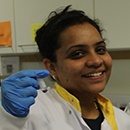
Richa Krishna | MSc student, Cellular Manufacturing & Therapy
Hailing from a clinical background and being aware of its current traditional therapy limitations, I opted for Cellular Manufacturing & Therapy to explore the future of advanced cell therapy. This field has a lot of potential due to current clinical trials and research advances. This course gave me an opportunity to gain knowledge of the state of the art of the cellular therapies transitioning into the health care systems around the globe. If this area interests you, NUIG would lend you a perfect platform from where you can shape your career in the research field or industry. Needless to add Galway is very friendly place for international students with support to help along your academic journey.
Rory Rafferty | MSc student, Cellular Manufacturing & Therapy
I chose this course because after spending 3 years working in the medical device industry I knew that I needed a chance in scenery. The reputation of NUIG as one of the colleges at the forefront of research, clinical trials, cellular manufacturing and GMP in the field of regenerative medicines naturally attracted me to the course. I felt that it was the perfect stepping stone that would allow me to greatly improve my CV. I feel the course has given me invaluable transferable skills. It has also given me a true insight into the workings of clinical research and Good Manufacturing Practices that I feel will allow me to leave my own lasting mark in the scientific world.in Connect with Rory
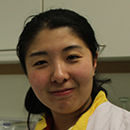
Ti Zhang | MSc student, Cellular Manufacturing & Therapy
A one-year taught master programme, Cellular Manufacturing & Therapy focuses on translating innovative biological therapies to clinical applications, especially in the stem cell area. This course has a close relationship with the Regenerative Medicine Institute scientists and Centre for Cellular Manufacturing Ireland staff. Participating in this course will significantly improve your academic performance and capability in the laboratory. Our extremely friendly lecturers will bring engaging classroom activities and the small class size includes students from different backgrounds, makes learning approachable.
James O'Brien | MSc student, Cellular Manufacturing & Therapy
During my Biotechnology undergraduate degree, I was generally most interested in the modern medical aspects, especially regenerative medicine, gene therapy and cell therapy. Unsurprisingly, when I heard that this new MSc. program was being set up, I immediately made inquiries, and found myself excited about applying. So far, this course has given me enormous insight into the scientific background of modern cellular therapies and has also provided practical industrial skills and knowledge. The course is well-structured, and the co-ordinators and lecturers have vast experience and excellent portfolios in the field. I feel my overall skillset has been specialized abundantly in just a short time by this course, and I feel like I will be more confident when applying for industrial jobs in the cellular therapy domain.









